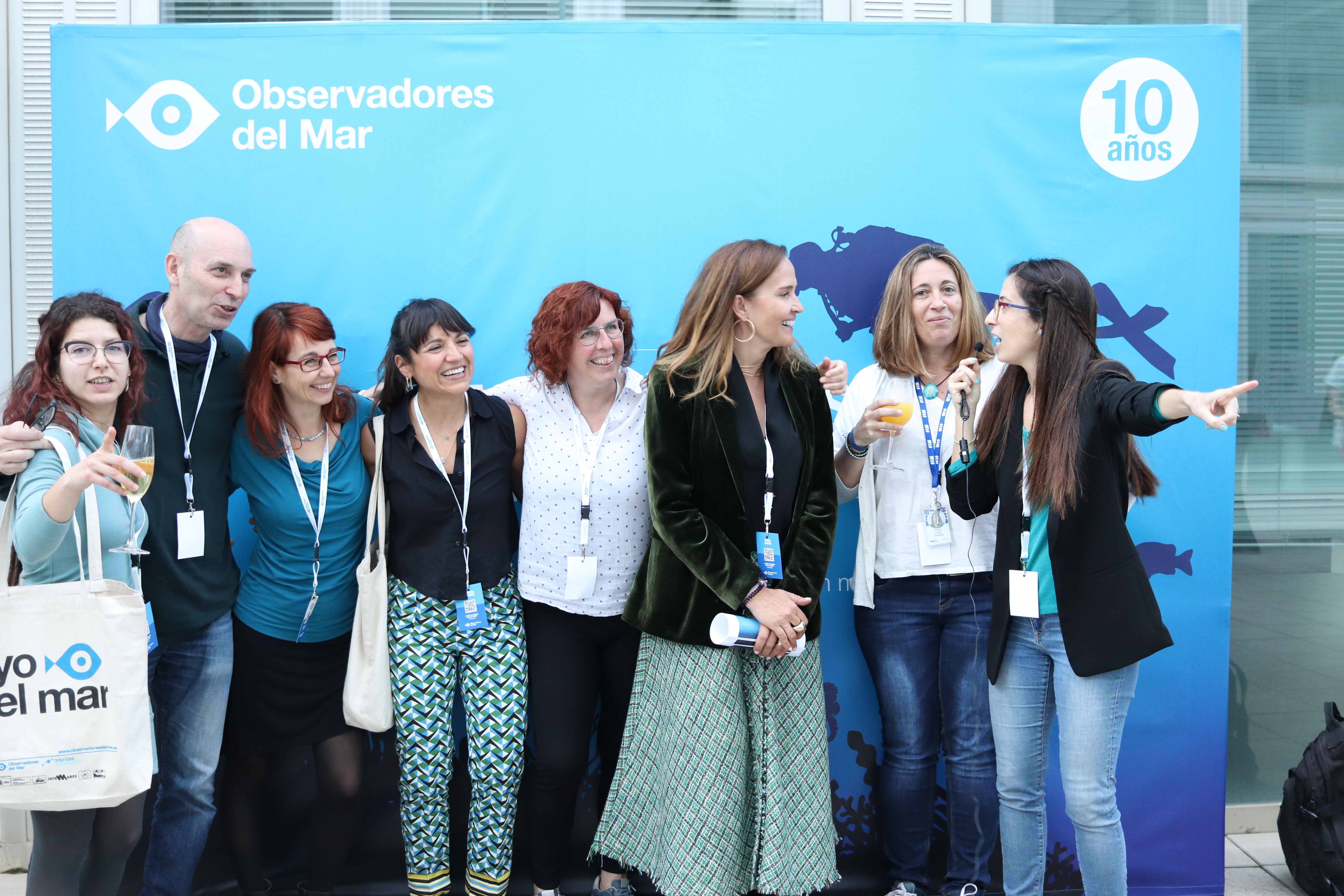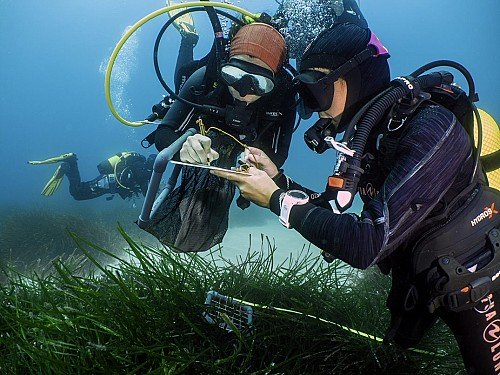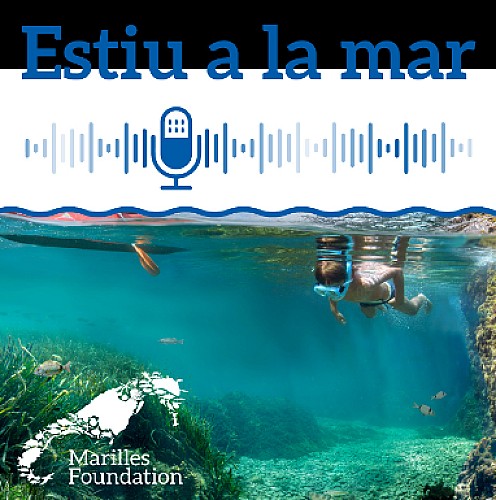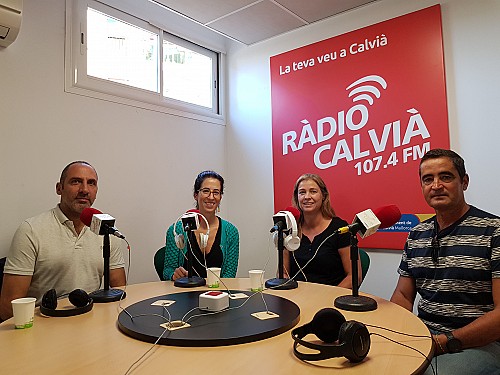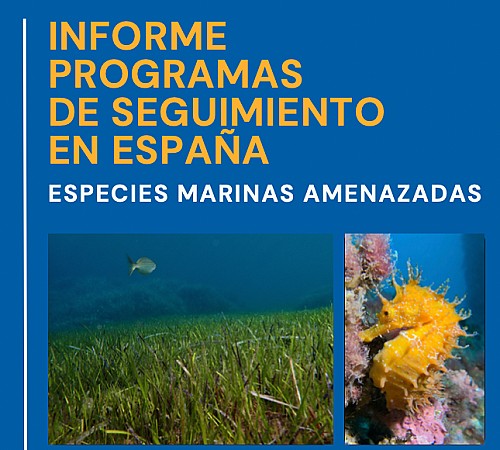The marine citizen science platform Observadores del Mar (Sea Watchers) is celebrating its 10th anniversary.
- In the last 10 years, more than 3,600 people have been involved in the project generating over 16,600 observations and endorsing the trajectory of this great community of sea lovers.
- Thirty-three per cent of the total observations were in the Balearic Sea.
- Observadores del Mar is established as the marine citizen science platform of reference in Spain.
- A hundred people attended the event marking the platform's 10th anniversary last Friday in Barcelona.
Observadores del Mar (Sea Watchers) marked its 10th anniversary last Friday with an event at the Barcelona Institute of Marine Sciences (ICM-CSIC) attended by a hundred people. The event showcased the milestones of the last decade and future projects.
Since its creation in 2012, the platform has promoted collaboration between the public and the scientific community, involving 100 researchers and some 3,600 people who have generated more than 16,600 observations, endorsing the trajectory of this large community of sea lovers. Thirty-three per cent of the observations were in the Balearic Sea where there is a large community committed to marine citizen science to provide data that helps improve marine knowledge and management.
Thanks to citizen participation, we have detected the expansion of the distribution of invasive species, such as the seaweed Caulerpa cylindracea towards the north of the Mediterranean or the arrival of the toxic pufferfish Lagocephalus sceleratus sighted in the Strait of Gibraltar, the westernmost point of the Mediterranean. There have been early warnings of impacts on biodiversity, such as the massive mortality triggered by a pathogen in populations of the Pinna nobilis, an emblematic mollusc of the Mediterranean, or the impact of marine heat waves on Red Gorgonians. Many individuals of the species Sparisoma cretense, commonly called 'old fish', a fish typical of the Canary Islands, are being reported in some areas of the Balearic Islands.
On the Observadores del Mar platform, you can report information to 15 different projects led by scientists from all over Spain. Specifically, there are three projects led by IMEDEA-CSIC scientists from the Balearic Islands: Invasive algae, Seagrass, and Nacras.
Another remarkable fact about the Observadores del Mar network in the Balearic Sea is the collaboration with eight diving centres and ten organisations on the four the islands.
In 2022, Observadores del Mar consolidated its position as the marine citizen science platform of reference in Spain thanks to the signing of an agreement with various marine centres of the Spanish National Research Council (CSIC). The signatories of the agreement are the Institute of Marine Studies (ICM), the Blanes Centre for Advanced Studies (CEAB), the Mediterranean Institute for Advanced Studies (IMEDEA), the Balearic Islands Coastal Ocean Observing and Forecasting System (SOCIB), and the Spanish Institute of Oceanography (IEO). Two of the five centres are based in the Balearic Islands.
About Observadores del Mar
Observadores del Mar is coordinated by the main Spanish National Research Council (CSIC) marine centres [Institute of Marine Studies (ICM); Blanes Centre for Advanced Studies (CEAB); Mediterranean Institute for Advanced Studies (IMEDEA); the Spanish Institute of Oceanography (IEO); and the Balearic Islands Coastal Ocean Observing and Forecasting System (SOCIB)] and counts on the participation of experts from different national and international research centres. More than 90 scientists are responsible for validating all the information that citizens upload to the platform.
Observadores del Mar is also a partner in the LIFE INTEMARES project, promoted by the Biodiversity Foundation of the Ministry for Ecological Transition and the Demographic Challenge. In the Balearic Islands, the platform has an alliance with Marilles Foundation. In the Canary Islands, it actively collaborates with the Network of Observers of the Marine Environment in the Canary Islands (Red PROMAR) to strengthen marine citizen science in all the islands.

